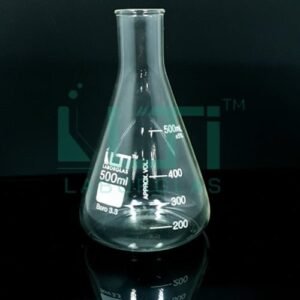| PART No. | Capacity (ml) | Pack Qty. |
| 7880-2 | 2 ml | 100 |
| 7880-4 | 4ml | 100 |
| 7880-5 | 5ml | 100 |
| 7880-8 | 8ml | 100 |
| 7880-10 | 10ml | 100 |
| 7880-15 | 15ml | 100 |
| 7880-20 | 20ml | 100 |
Here are some common uses of septa in laboratory settings:
- Gas Chromatography (GC):
- In gas chromatography, septa are used as the sealing material for the injection port. The septum allows for the penetration of the syringe needle during sample injection while maintaining a gas-tight seal.
- Liquid Chromatography (LC):
- Septa are used in liquid chromatography systems to seal the sample vials, preventing evaporation and contamination of the liquid samples.
- Headspace Analysis:
- Septa are used in headspace vials for techniques like headspace gas chromatography. They create a sealed environment above the sample, allowing for the analysis of volatile compounds.
- Sample Storage:
- Septa are employed in laboratory vials to seal and protect stored samples, particularly when samples need to be maintained in a controlled environment.
- Environmental Analysis:
- Laboratories conducting environmental analyses may use septa in sample containers to ensure a secure seal, preventing the escape of volatile compounds during transportation and storage.
- Analytical Chemistry:
- In various analytical techniques and methods, septa play a crucial role in maintaining the integrity of the samples and preventing contamination.
- Pharmaceutical Analysis:
- Pharmaceutical laboratories use septa in sample vials to seal and protect pharmaceutical samples during analysis and storage.
- Microbiology:
- Septa are used in microbiological laboratories to seal containers for the cultivation of microorganisms or for the aseptic transfer of liquids.
- Sample Preparation:
- Septa are used in sample preparation processes, allowing for the secure sealing of vials during the preparation of samples for analysis.
- Volatile Organic Compound (VOC) Analysis:
- Laboratories analyzing VOCs may use septa in sample containers to prevent the escape of volatile compounds and ensure accurate analysis.
- Biotechnology:
- In biotechnology applications, septa may be used in various processes, including the sealing of culture vessels and sample containers.
- Research and Development:
- Research laboratories across disciplines use septa in diverse applications where sample integrity and containment are crucial.







